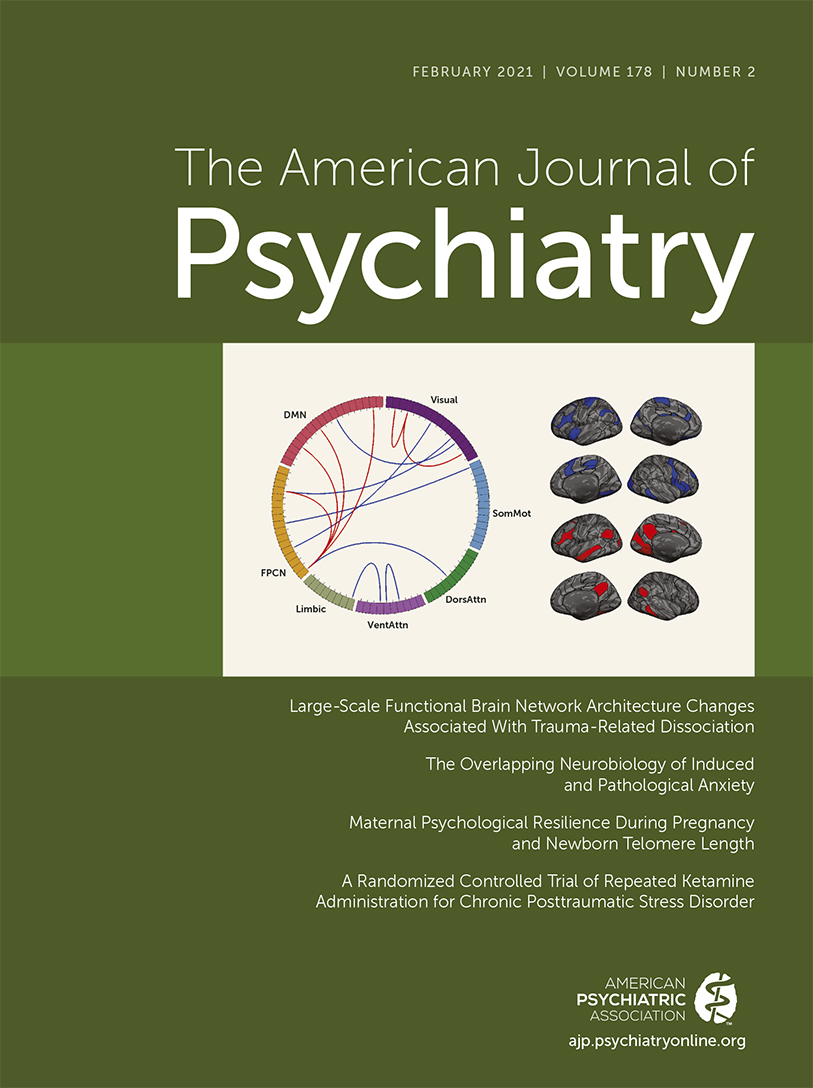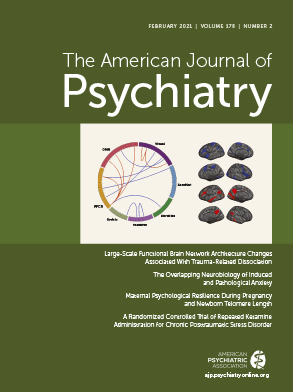To the Editor: We appreciate the comments by Drs. Schonfeld and Bianchi as they highlight some of the main points of our article and allow us to provide further clarification of the study findings. Our major conclusion is that burnout is prevalent among psychiatrists and is associated with depression and that when it is present, it is important to consider whether depression is present as well. We respond to the specific points in the letter below.
First, the authors believe that our study overestimates the prevalence of burnout. However, our study provides neither an operational definition of burnout nor the true prevalence of burnout among psychiatrists. The study reports the findings from a single validated scale with predefined cutoff scores that indicate high risk for burnout with well-known limitations. We are careful to describe risk for burnout as opposed to a diagnosis of burnout for those above the cutoff score that has been used in the literature (
1). We are in agreement that there is a need to more clearly delineate burnout, and indeed, that is the focus of the associated commentary published in the
Journal (
2).
Second, the authors of the letter claim that one of the Oldenburg Burnout Inventory (OLBI) subscales, disengagement, reflects an adaptation to phenomena measured by the other subscale, exhaustion, and therefore the study should have focused solely on exhaustion. This is an interesting theoretical notion, but it ignores the extensive literature on the validity of the OLBI and its use as one of the most frequently employed measures of burnout (
3).
Third, we are in agreement with the letter authors that there is significant overlap between burnout and depression. Given the lack of clear consensus on the definition of burnout and the marked heterogeneity in estimates of burnout using dichotomous scores, we chose to analyze our data as a continuous measure. Further, we intentionally and consistently refer to symptoms of burnout and depressive symptoms as opposed to categorical definitions of burnout and/or depression throughout the article. In addition, in an effort to capture broader adverse effects of stress, we employed a well-validated measure of depression and measures of workplace factors thought to affect job stress and physician wellness (e.g., control over schedule).
Finally, our findings are consistent with the letter authors’ final point that high scorers on burnout inventories are at risk for depression. We are strongly in agreement that these physicians should be offered treatment and that addressing depressogenic work-environment factors, such as autonomy, is important.

